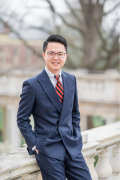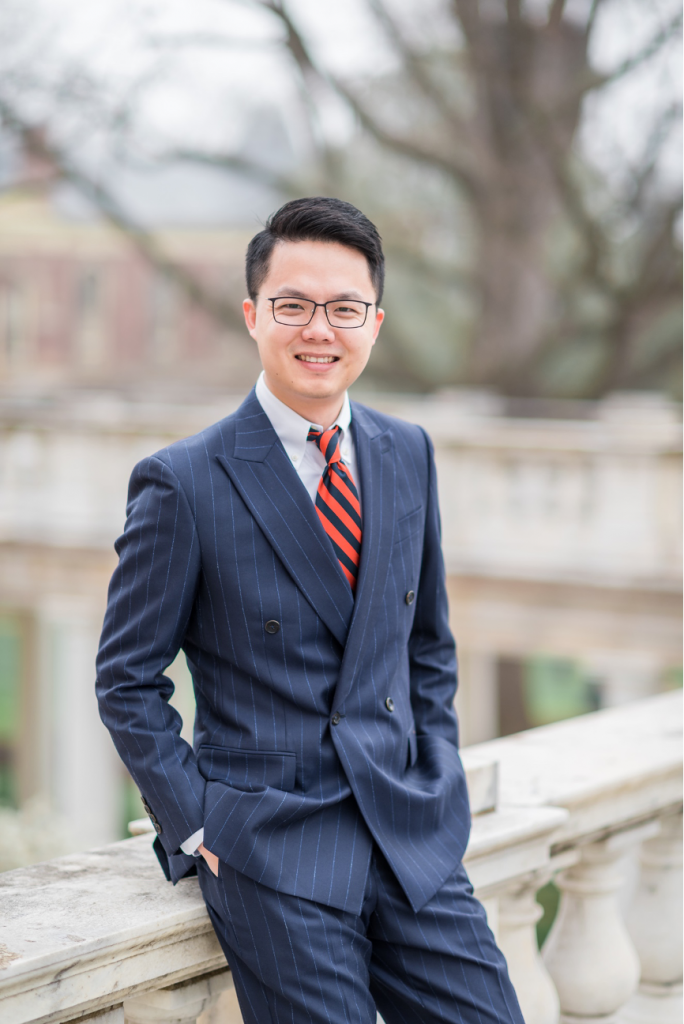One of mechanical engineer’s incoming faculty members is bringing in expertise in fluid dynamics and robotics, an interest that dates back to his childhood.
Qiang Zhong grew up in Wenzhou, a small coastal city in southeast China. He remembers spending summers with his grandfather, a well-known diesel mechanic in his hometown, which is what got him interested in the field of engineering. His parents always encouraged him to do hands-on activities like building model airplanes and RC boats.
“I can still remember I went to the roof of my parents’ house to test my new kite when a typhoon was coming,” said Zhong. “Those experiences are like seeds in my life, eventually growing and bringing me into fluid mechanics and robotics research.”
Zhong attended Zhejiang University where he majored in bio-system engineering. Through his education, he developed a deep understanding of dynamics, robotics, controls, plant science and chemistry. He said this fundamental knowledge made it easier when he transitioned to the field of mechanical engineering (ME) for his graduate studies.
One of his top accomplishments as an undergraduate student came his junior year when he had the opportunity to lead his team during a robotic competition hosted by the American Society of Agricultural and Biological Engineers (ASABE) in Kansas City. Through this experience, he learned about all the advanced robotics research taking place in the United States, which led him to the University of Pittsburgh.
As a master’s ME student at Pitt, Zhong studied under Nitin Sharma and was part of a project that examined the walking gait of individuals using an exoskeleton system designed to help those with spinal cord injuries regain their ability to walk. Zhong applied his knowledge of advanced signal processing, rigid body dynamics and robotic systems to the project.
“Specifically, I designed a nonlinear state estimation algorithm to perform online waking gait estimation based on wearable sensors,” he said.
After completing his M.S. in ME, Zhong went to the University of Virginia (UVA) to pursue his doctoral studies. There he was advised as the first Ph.D. student for Daniel Quinn and helped Quinn to build a brand new lab from scratch. During his Ph.D. studies, Zhong focused on merging fluid mechanisms and robotics to understand the physics of high-performance swimming and develop ultra-performance underwater robotics.
“My research works like a bridge, which connects fluid dynamics, robotics, and biomechanics to answer the unknown interdisciplinary problems,” he said.
One of his most exciting works was developing an elegant mathematical model that reveals the secrets of how fish tune their stiffness in real-time. It was successfully deployed in a bio-inspired robot fish called “AutoTuna”.
After graduating in 2021, Zhong expanded his research to more diverse bio-inspired robotics as a postdoctoral researcher at UVA. Zhong and his colleagues developed a new robotic stingray system that allowed them to distill critical bio-locomotion physics and led to a deeper understanding of ray swimming.
Zhong will join the ME faculty at Iowa State University as an assistant professor beginning in Spring 2023. At ISU he hopes to expand his research to focus on other elements such as bio-inspired amphibious robotics, flow sensing and ultra-maneuvering swimming/flying robots. Zhong said part of what attracted him to Iowa State was the opportunity to collaborate with renowned researchers such as Baskar Ganapathysubramanian, Joseph C. and Elizabeth A. Anderlik Professor in Engineering and professor of ME, as well as Hui Hu, Martin C. Jischke Professor in aerospace engineering.
“The mechanical engineering department at Iowa State is doing a great job connecting interdisciplinary research to solve big challenges,” said Zhong. “I am impressed by the superior facilities and diverse research faculty. Moreover, I love the department atmosphere, which is friendly and makes me feel at home.”
Zhong looks to establish his own research lab when he arrives on campus and is currently recruiting students. In particular, he’s looking for highly-motivated and ambitious students with a solid background in math or robotics.
“My lab is always open for those students with a great passion for fluid dynamics and robotics,” he said.
In the classroom, he plans to teach about dynamical systems, a graduate-level course he developed at UVA, which could become part of the curriculum for Iowa State’s cyber-physical systems minor. The course focuses on fundamental modeling skills and project-based hands-on experiments. Students apply what they learn to a physical dual rotor system (a constrained drone) and control it to take off and land, while maintaining balance. Zhong said he’s also interested in teaching courses in fluid mechanics as well as dynamics, and he plans to bring in “animations, videos, and hands-on coding widgets to help students to better understand the hard-core physics of our world.”
Zhong, who considers the culinary arts to be one of his biggest interests outside of work, said he is excited to move to Iowa.
“I will have my first child in September, so my wife and I are looking forward to starting our family’s next chapter in Ames,” he said.
If you’re interested in joining Dr. Zhong’s lab, check his lab website: qzhonglab.com or email him to learn more: qzhong1@iastate.edu

